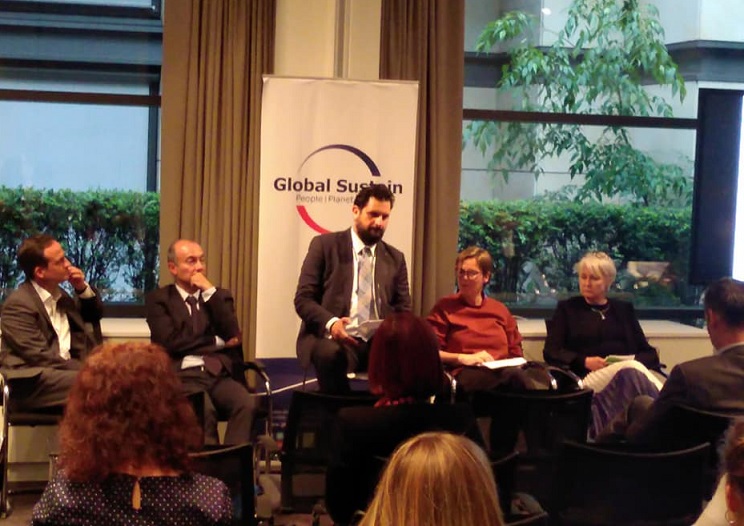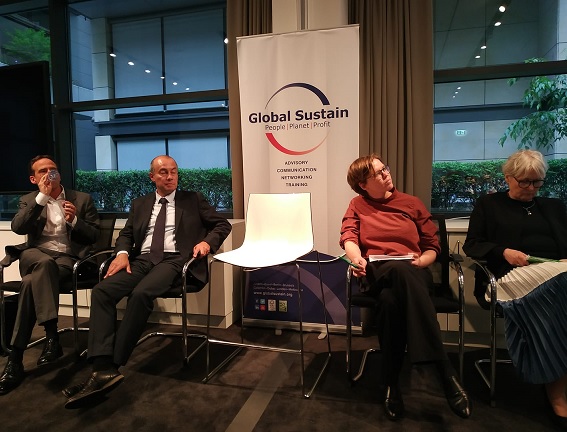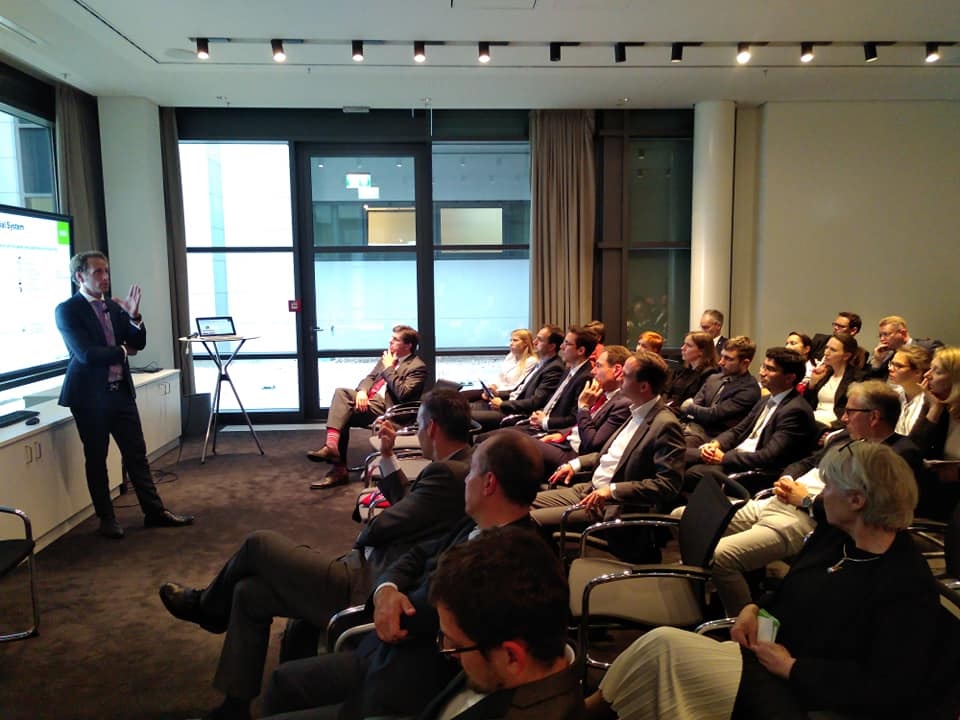Based on the speakers’ presentations, the panel interactive discussions and remarks, following are in brief the main topics, highlights and conclusions of the forum.
A common conclusion and signal from all speakers and panels was, that the ESG Market in most asset classes and especially fixed income (and especially Green Bonds) is not only growing gradually in the last years with positive trends, but there is also a high demand for such ESG products. In other words, ESG is turning from a Niche Trend to a Mainstream Trend. The PRI signatories number is rising, the ESG Assets under Management (AuM) and the number of Mainstream Investors turning into ESG is also rising.
There are many different ESG Investment Strategies and ESG Investment Score Models and one has to be careful, which ones we use, how to use them and how to evaluate them, therefore there is a need for a very careful approach to the ESG Investment process. There was a common estimation, that ESG Engagement Dialogue and link ESG with TCFD can be helpful. All these KPIs are growing, confirming the ESG positive market trend not only at the institutional level but also at the retail market as well.
Volker Weber, President FNG, referred to the activities of FNG and growing interest by banks and investors in ESG as well as on the positive market trend of ESG Investments.
Stefan Pletzer, Head of Financial Institutions, SEB AB Frankfurt Branch as well as other senior SEB managers (Christina Wadsjö, Co-Head ESG Analysis der SEB Investment Management AB, Terje Anderson, Head of Markets, SEB AB Frankfurt Branch) referred to the rising demand for ESG products, especially in the Green Bonds market, confirmed the outperformance of ESG products, especially Green Bonds VS mainstream bonds, estimated also a positive trend for ESG market in the next years, talked about the importance of engagement and ESG dialogue and underlined the importance of climate risk as financial risk and among ESG factors, with environment as the most important and more concrete quantifiable one.
Yannis Salavopoulos, Managing Director Global Sustain GmbH & Group Head Int. Affairs (Forum host), referred among others to the comparative advantage ofthe already ESG-ready Investors, VS Mainstream ones, on the light of the upcoming new EU Regulation on Sustainable Investment Disclosure Rules, which is changing the investment industry as we know it. He mentioned the need for common ESG Standards, substantial ESG Integration (quantifying the weight of E, S & G) and adoption of structured ESG Dialogue by Investors.
He projected following trends for the coming years in the ESG market: 1. More ESG oriented Regulation in EU. Towards common accepted standards as the greatest challenge. 2. More and new ESG Market Players. 3. From exclusion to greater ESG Integration.Differentiation between ESG Strategies. 4. Greater Shareholder Dialogue & Activism. 5. More Sophisticated and ESG-relevant Reporting by listed Corporates, More divestments in specific sectors with negative ESG impact.
Michael Spanos, Managing Director, Global Sustain Group, underlined the importance of climate Risk as Financial factor and the TCFD Initiative and Reporting as well as the link between TCFD & ESG. He talked about the TCFD Reporting both for Corporates, Banks and Investors linking it with the ESG integration by listed Corporates. He also referred to the alignment of the TCFD Recommendations with the European Directive on Non-Financial Reporting (NFR) and highlighted some case studies of the current practices in TCFD reporting, presenting also a roadmap for companies to consider towards the transition to a low carbon economy.
Nina Roth, Director, ESG Investments, BMO Global Asset Management referred among others, to the importance of ESG Engagement Dialogue with companies, in which is invested as success factor with three different approaches linking all three also with UN SDGs integration: Bottom up (Prioritize companies), top down (thematic engagement), event – driven (reactive engagement).
Marius Cara, Deputy Director, Investor Relations, European Investment Bank, referred to the leading role of EIB as important stakeholder in the discussions about the upcoming EU Regulation on Sustainable Investments Disclosure Rules, to the recent successful launch of the first Sustainability Awareness Bond by EIB, following many series of Green Bonds in the past. EIB is acting as a catalyst in the Bonds market, confirming the high demand, dynamism and positive trend of the Green Bonds and Sustainability Bonds in general.
Dr. Axel Hesse, Founder S-DM GmbH, talked about a positive trend in the ESG market, on the importance and added value of ESG Analysis and focused on the need of common recognised ESG Standards and also on how and which is the best way to achieve common ESG Standards.
Maya Hennerkes, Lead ESG, Financial Intermediaries, EBRD, mentioned among others, that ESG is already an important topic not only at EBRD but also even Central Banks call for action and consider all three ESG pillars important. For EBRD, ESG is important both for the strategy as well as in the financing of projects. ESG performance is a requirement for EBRD when evaluating projects for financing.
Luis Neves, Managing Director of Global e-Sustainability Initiative underlined the importance of linking Sustainability and ESG with Digital Transformation and Innovation. All corporations need in the future to adopt more innovative software solutions, in order to analyse investment decisions as well as different climate risk scenarios and be able to identify climate risks and opportunities by being able to evaluate metrics with the use of technology. GeSI has developed a technology software toolkit and guide on how to apply a standard approach to TCFD across the ICT sector.
Alexander Oliver Berg, Senior Advisor, CICERO Climate Research Institute, was as all other speakers very positive about the ESG Market trend and especially the Green Bonds Market but was relatively critical towards the upcoming EU Regulation. He argued that the EU Regulation may lead to a niche market, if definitions are too strict and/or to the lowest common denominator, the taxonomy could de-motivate green market leaders, the proposed taxonomy approach does not currently provide an integrated framework for informing investors about climate and environmental risks. CICERO has developed a proprietary ‘green’ ranking system, which was presented at the Forum.
Among forum partners this year were: SEB AB Frankfurt Branch, Trillium Asset Management (USA), Bethmann Bank (ABN AMRO Group) FNG, Handelsblatt, Global e-Sustainability Initiative, Absolute Research, Altii.de, Good Events, ANT1 Group, CAPITALS Circle Group. Forum was featured on various German media.




